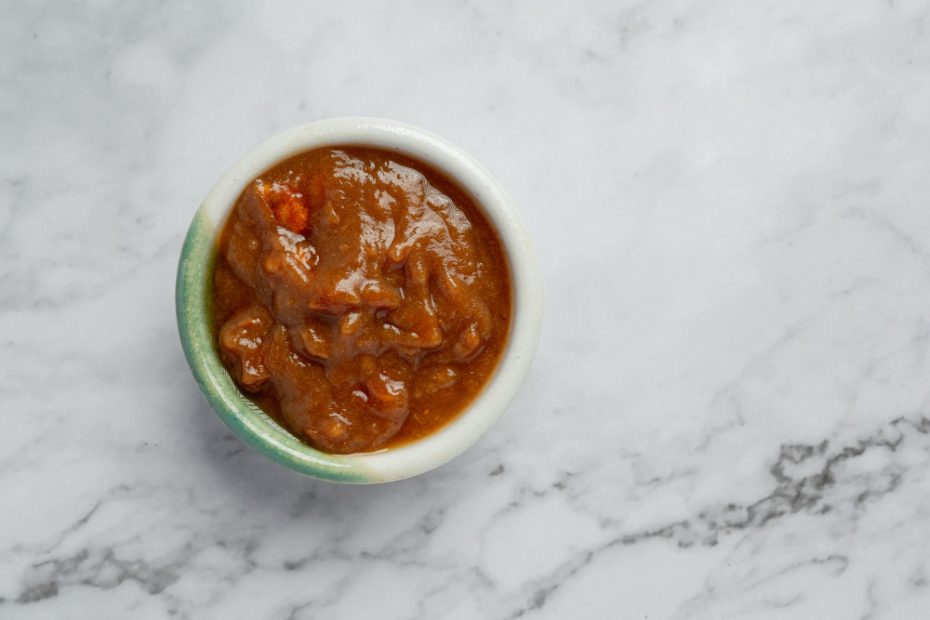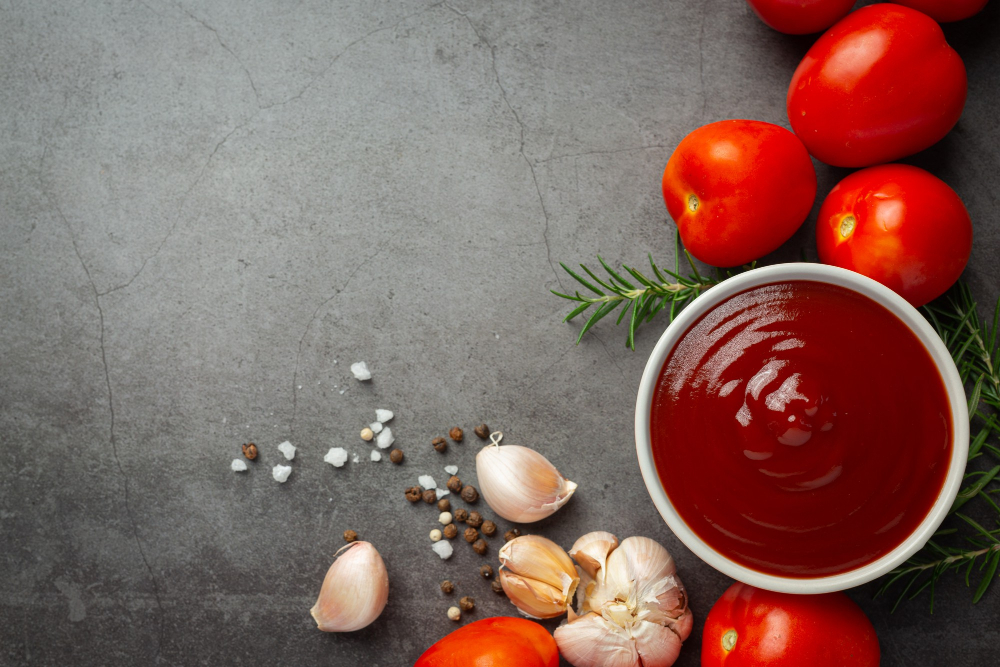Are BBQ marinades healthy?
Barbecue season is a much-anticipated time of the year in the UK, with families and friends gathering in gardens to enjoy delicious grilled meats and vegetables. One essential aspect of this culinary tradition is the use of marinades to enhance the flavor and tenderness of the BBQ dishes. However, a common concern among health-conscious individuals is whether these marinades are actually healthy.
The basics of marinades
Marinades are typically made by combining various ingredients such as oil, vinegar, citrus juices, herbs, spices, and sometimes sugar. The main purpose of marinating is to tenderize the meat and infuse it with delicious flavors before grilling. While many marinades can be high in sodium, sugar, or unhealthy fats, it is possible to create healthier alternatives by making smart ingredient choices and being mindful of portion sizes.
The role of portion control
When it comes to enjoying BBQ marinades, moderation is key. It’s important to remember that a little goes a long way in terms of flavor, so you don’t need to drown your food in marinade. By using portion control, you can still enjoy the taste-enhancing benefits of marinades without consuming excessive amounts of potentially unhealthy ingredients.
Mindful ingredient choices
The ingredients used in marinades greatly influence their overall nutritional value. Making conscious choices can help ensure that your BBQ marinades are healthy. Here are a few suggestions:
- Choose heart-healthy oils, such as olive oil or avocado oil, instead of highly processed oils.
- Opt for low-sodium soy sauce or tamari to reduce sodium intake.
- Use natural sweeteners like honey or maple syrup instead of refined sugars.
- Experiment with fresh herbs and spices to add flavor without relying too heavily on salt.
The benefits of marinades
While it’s important to be mindful of the ingredients used in BBQ marinades, it’s worth noting that they offer numerous benefits beyond just flavor. Marinating meat before grilling has been shown to reduce the formation of harmful compounds called heterocyclic amines (HCAs) that can arise when cooking meat at high temperatures. Additionally, marinades can help to keep food moist and tender, making it easier to digest and enjoy.
“Marinades not only enhance the taste of grilled food, but they can also contribute to potentially healthier cooking practices.”
Choosing lean proteins
Another factor that determines the overall healthiness of your BBQ dish is the choice of protein. Opting for lean cuts of meat like chicken breast or pork tenderloin, or even replacing meat with vegetables or plant-based alternatives, can further improve the nutritional profile of your BBQ meal.
How to Reduce Sodium in BBQ Marinades?
Barbecue season is upon us, and nothing complements grilled meats and veggies quite like a flavorful marinade. However, many store-bought marinades are loaded with sodium, which can be detrimental to our health when consumed in excess. The good news is that reducing sodium in BBQ marinades is easier than you might think. By making your own marinades at home and experimenting with alternative ingredients, you can enjoy a delicious, low-sodium BBQ experience.
1. Choose Low-Sodium Ingredients
When preparing marinades, opt for low-sodium versions of key ingredients such as soy sauce, Worcestershire sauce, and broth. These alternatives can significantly reduce the sodium content without compromising flavor. Additionally, consider using fresh ingredients like lemon juice, vinegar, or herbs to add zest and depth to your marinades.
2. Experiment with Herbs and Spices
Herbs and spices can elevate the taste of your marinades without relying on excessive salt. Get creative and try combinations like garlic, paprika, cumin, ginger, or rosemary to add bold flavors to your marinades. Not only will this reduce sodium, but it will also provide a burst of aromatic goodness to your BBQ dishes.
3. Control Portion Sizes
While it’s tempting to drown your meat in marinade, remember that a little goes a long way. Use just enough marinade to coat your food evenly, avoiding excess that would go to waste. This way, you can still enjoy the flavors of your marinade without overloading on sodium.
Fun Fact: “According to the British Heart Foundation, a high-sodium diet can increase blood pressure and the risk of heart disease.”
4. Consider Natural Alternatives
There are various natural alternatives that can enhance the flavors in your BBQ marinades while reducing sodium content. For instance, apple cider vinegar, pineapple juice, or orange zest can add acidity and sweetness without relying on salt. Play around with these alternatives to find the perfect balance for your taste buds.
5. Make Your Own Marinades at Home
Creating homemade marinades not only allows you to control the ingredients but also lets you customize them to your liking. You can easily find low-sodium recipes online or experiment with your own combinations. By doing so, you can reduce sodium intake while still enjoying the tantalizing flavors of a BBQ marinade.
With these tips, you can easily reduce sodium in your BBQ marinades without sacrificing taste. Your health and taste buds will thank you! So, why not make your next BBQ get-together a low-sodium sensation?
The Effects of Grilled Marinated Meat on Cholesterol
Grilling marinated meat is a popular cooking method, especially in the UK where barbecues are a part of the summer tradition. However, it’s important to understand the impact this cooking technique may have on cholesterol levels and overall health.
The Process of Grilling Marinated Meat
Grilling involves exposing meat to high heat, which can lead to the formation of harmful compounds such as heterocyclic amines (HCAs) and polycyclic aromatic hydrocarbons (PAHs). These compounds are formed when fat and juices from the meat drip onto the hot charcoal or gas flames, causing smoke and flames to rise up and adhere to the surface of the meat.
The Impact on Cholesterol Levels
The formation of HCAs and PAHs during grilling has been linked to an increased risk of cancer and other health issues. While the direct impact on cholesterol levels is still being studied, research suggests that consuming excessive amounts of grilled marinated meat may have negative effects on cholesterol.
High-fat cuts of meat like ribs, sausages, and burgers can contribute to elevated levels of LDL (low-density lipoprotein) cholesterol, commonly known as “bad” cholesterol. Additionally, the charring or blackening of meat during grilling has been associated with increased oxidation of LDL cholesterol, further exacerbating the potential harm on cardiovascular health.
A study published in the Journal of Agricultural and Food Chemistry found that marinating meat before grilling can help reduce the formation of HCAs. The researchers suggested that using marinades containing antioxidant-rich ingredients like herbs, spices, and citrus juices can provide protective effects against the harmful compounds.
Recommendations for Healthier Grilling
To minimize the potential negative effects of grilled marinated meat on cholesterol and overall health, consider the following recommendations:
- Choose leaner cuts of meat: Opt for lean meats like skinless chicken breasts, turkey, or fish that are lower in saturated fat and cholesterol.
- Marinate your meat: Use marinades containing antioxidants like olive oil, garlic, rosemary, or lemon juice to help reduce the formation of harmful compounds.
- Avoid charring: Prevent excessive charring or blackening of the meat by keeping the grill temperature moderate and flipping the meat frequently.
- Add more fruits and vegetables: Increase the nutritional value of your meal by including a variety of grilled fruits and vegetables as side dishes.
- Practice moderation: Enjoy grilled marinated meat as part of a balanced diet, rather than relying on it as the main source of protein regularly.
“Grilling marinated meat can be a tasty and enjoyable cooking method, but it’s crucial to be aware of its potential impact on cholesterol levels and overall health. By making smart choices in selecting leaner meats, using antioxidant-rich marinades, and practicing moderation, you can continue to enjoy delicious grilled meals while taking care of your well-being.” – British Nutrition Foundation
Are there carcinogens in charred marinated meats?
Many people in the UK enjoy the delicious taste of charred marinated meats, especially during summer barbecues. However, there has been some concern about the potential health risks associated with consuming these grilled delicacies. In particular, there is a question of whether carcinogens are formed when marinated meats are cooked at high temperatures.
What are carcinogens?
Carcinogens are substances that have the potential to cause cancer. They can be found in various forms, including chemicals, radiation, and certain types of foods. When it comes to grilled meats, the concern lies in the formation of two specific carcinogens: heterocyclic amines (HCAs) and polycyclic aromatic hydrocarbons (PAHs).
Formation of carcinogens during grilling
Carcinogens are formed when meat is cooked at high temperatures, such as during grilling or barbecuing. The high heat causes chemical reactions between amino acids, creatine, and sugars present in the meat, resulting in the formation of HCAs and PAHs. HCAs are formed directly on the surface of the meat, while PAHs are created when fat and juices from the meat drip onto the open flame, causing smoke that contains these harmful compounds.
However, it’s important to note that not all charred or grilled meats contain harmful levels of carcinogens. Various factors influence their formation, including cooking temperature, cooking time, type of meat, and the presence of marinades or seasonings.
Impact of marinades on carcinogen formation
Marinating meats before grilling can actually help reduce the formation of HCAs. Researchers have found that certain herbs, spices, and ingredients commonly found in marinades, such as garlic, onion, rosemary, and lemon juice, can act as natural antioxidants and inhibit the formation of these harmful compounds. Additionally, marinating meats for at least 30 minutes prior to cooking has been shown to significantly reduce HCA levels.
Pro Tip: When marinating meats, choose recipes that include ingredients known to have antioxidant properties for added health benefits.
However, it’s important to note that marinades are not a foolproof method of eliminating carcinogen formation. While they can reduce the levels of HCAs, PAHs may still form when fat drips onto open flames. To minimize this risk, it’s recommended to trim excess fat from meat before grilling and avoid charring or burning the meat.
Enjoying grilled meats safely
While there may be some concern about carcinogens in charred marinated meats, enjoying these mouth-watering dishes can still be part of a healthy diet. Here are some tips to minimize the potential health risks:
- Choose lean cuts of meat with less visible fat.
- Marinate meats before grilling using recipes with antioxidant-rich ingredients.
- Cook meats at lower temperatures and avoid charring or burning.
- Prevent flare-ups by keeping a close eye on the grill and using indirect heat methods.
- Consider alternative grilling methods like stove-top grilling or using a grill pan.
By following these tips, you can still enjoy the delicious flavors of charred marinated meats while minimizing your exposure to potentially harmful carcinogens.
Benefits of Using Natural and Organic Ingredients in Marinades
Marinades are a great way to enhance the flavor and tenderness of meats, fish, and vegetables. While there are many marinade options available in stores, using natural and organic ingredients can provide several benefits for your health and taste buds. Here’s why you should consider incorporating natural and organic ingredients into your marinades:
1. Health Benefits
Natural and organic ingredients are free from harmful pesticides, preservatives, and artificial additives that can have negative effects on your health. By choosing organic ingredients, you can ensure that your marinades are free from synthetic chemicals that may be found in conventionally grown produce and processed foods.
2. Enhanced Flavor
Natural and organic ingredients tend to have stronger flavors compared to their conventional counterparts. When you use fresh herbs, spices, and citrus fruits in your marinades, they can infuse the food with their vibrant and natural flavors, creating a more delicious and satisfying dish.
3. Environmental Sustainability
Opting for natural and organic ingredients supports environmentally friendly practices. Organic farming methods promote soil and water conservation, reduce pollution, and support biodiversity. By choosing organic ingredients for your marinades, you are contributing to a more sustainable food system.
4. Nutritional Value
Natural and organic ingredients are generally richer in nutrients compared to conventionally grown produce. For example, organic fruits and vegetables tend to have higher levels of vitamins, minerals, and antioxidants. By using organic ingredients in your marinades, you can boost the nutritional value of your meals.
Did you know? A study published in the Journal of Agricultural and Food Chemistry found that marinating meats with natural ingredients can reduce the formation of harmful compounds called heterocyclic amines (HCAs) during cooking.
5. Peace of Mind
Using natural and organic ingredients in your marinades allows you to have peace of mind, knowing that you are making healthier choices for yourself and your loved ones. It is also a great way to support local farmers who prioritize sustainable farming practices.
Next time you prepare a marinade, consider using natural and organic ingredients to enjoy the numerous benefits they offer. Experiment with fresh herbs, spices, oils, and citrus fruits to create flavorful and healthy marinades that will elevate your culinary creations.
Can marinating reduce the risk of foodborne illnesses?
In recent years, there has been growing concern about the risks associated with foodborne illnesses. These illnesses occur when harmful bacteria or pathogens contaminate our food, leading to various health issues. One popular method that has been suggested to reduce the risk of these illnesses is marinating.
The Science Behind Marinating
Marinating involves soaking food, usually meat or poultry, in a mixture of ingredients such as herbs, spices, oils, and acids like vinegar or lemon juice. This process not only enhances the flavor and texture of the food but can also serve as a protective measure against foodborne pathogens.
When food is marinated, the acidic components in the marinade create an environment that is less favorable for the growth of bacteria. The acid denatures the proteins on the surface of the food, making it more difficult for bacteria to survive and multiply.
Evidence and Benefits of Marinating
Studies have shown that marinating can indeed help reduce the risk of foodborne illnesses. For example, a study published in the Journal of Food Science found that marinating chicken in a mixture containing lemon juice significantly reduced levels of Salmonella, a common cause of food poisoning.
“Marinating chicken in a mixture containing lemon juice significantly reduced levels of Salmonella.”
Marinating has additional benefits beyond reducing the risk of foodborne illnesses. It can also help tenderize meat, enhance the flavor profile, and add moisture to otherwise dry cuts of meat. Furthermore, by adding herbs and spices to the marinade, you can increase the nutritional value of your meal.
Best Practices for Marinating
To ensure safe and effective marinating, it’s important to follow a few best practices:
- Always marinate in the refrigerator and avoid leaving food out at room temperature as this can promote bacterial growth.
- Avoid reusing marinades that have come into contact with raw meat or poultry, as they can harbor harmful bacteria.
- Marinate for an appropriate period of time; too short may not give the desired flavor, while marinating for too long can affect the texture of the meat.
- For even distribution of flavors, consider using a sealable plastic bag to marinate, ensuring the food is fully submerged.
Conclusion
While marinating your food won’t completely eliminate the risk of foodborne illnesses, it can certainly help reduce it. By following proper marinating techniques and using acidic marinades, you can create an environment that inhibits the growth of harmful bacteria while enhancing the taste and tenderness of your food.



